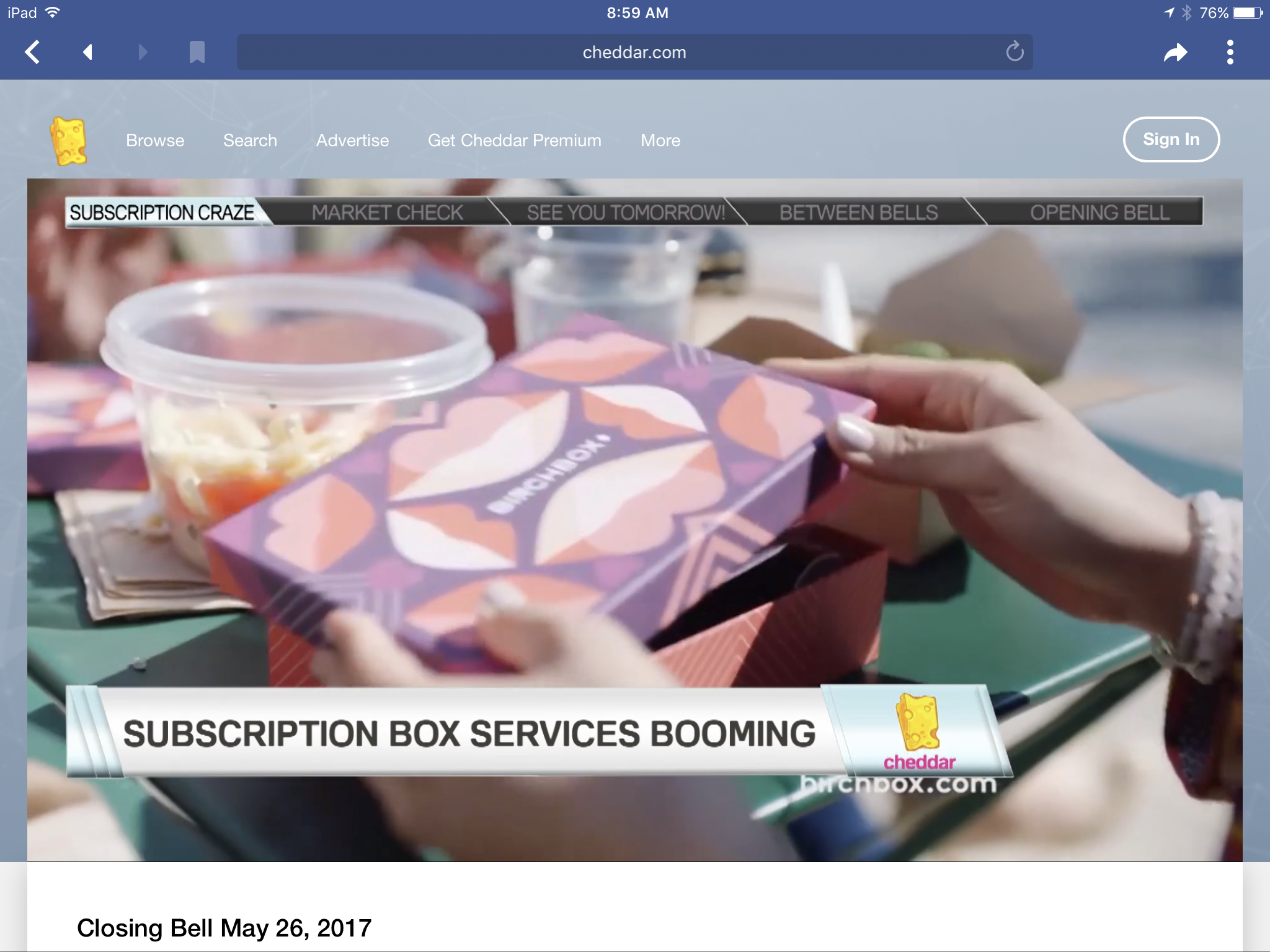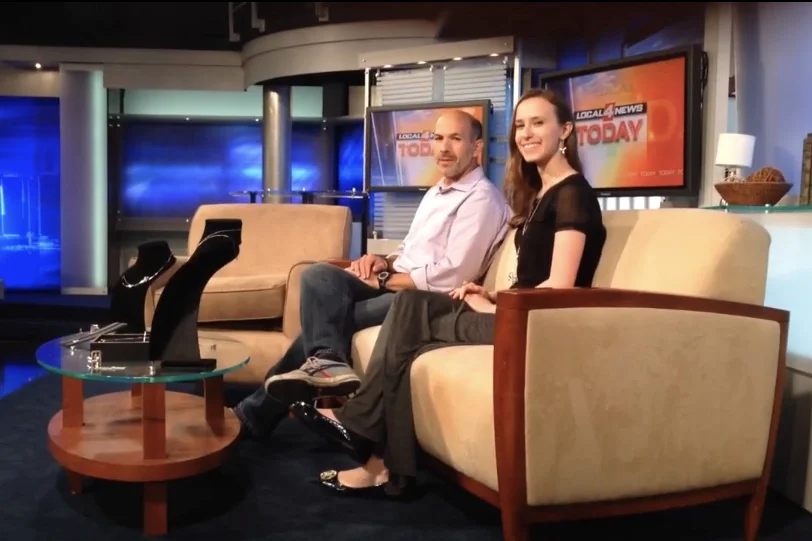The HOTTEST magazines and websites are ....
5 Tips in Planning Events That Are Newsworthy
Organizing a trade show is not easy. The preparation in site selection, speaker solicitation, and event promotion alone takes a full year or more. Getting the media to come to your event is also a chore. Depending on the issues being discussed and location can determine whether or not the media takes interest. So here are 5 tips in planning an event and bringing the media there to talk about
These three things will help you get in front of a real reporter
Engaging the media helps you build credibility, establish trust and raises awareness about the organization. You should work to develop proactive relationships with reporters covering issues important to the organization and develop content or collect data to help reporters tell unique stories about issues important to the company.
Remember these 11 simple things for any interview
Please do these 5 things before you talk to a reporter
What is news?
The world around us is changing. Not necessarily because of an election, but how to use and interact with technology. We need to be smarter, wiser and more connected to the world around us to know fact from fiction. We need to be vigilant and question where our news and information is coming from and who is telling it. Believe what you want but know for every issue there is always more to the story being told or the pictures and video being shared.
Defending the Accused in a Sex Crime
Are you relevant to today's news cycle?
The community benefits when everyone is engaged
The community benefits when everyone is engaged. From the design stage to the public process in securing permits, in addition to raising capital and targeting potential retailers and other tenants, constant engagement is vital to the success of any high profile project.
Developing strategic relationships “early-on” helps minimize risk and helps anticipate barriers to seeing projects to their completion. Effective communications is vital to the public’s understanding of the project and the governments involved in helping the project move forward. Therefore, the company or consortium leading the project should be in control of the process and be proactive with their messaging and outreach.
Don't announce anything today!
Timing is everything and if you are planning to launch a new product on today (June 15) or make a major announcement, I would reconsider. In launching a product, announcing an event or otherwise trying to make news in a time when reporters are working on multiple stories at once, while posting to their social media feeds, timing is everything.
When public opinion matters more than a judge's opinion
Marketing Guide| The ideal length of online content
Today we are more mobile than before and rely on our phones and tablets to check the latest news or check up on friends and family. As a result, we not only have to learn how to speak in soundest we have to learn how to say what we want to say in as few words as possible. That is we are starting to communicate more and more with photos and other images. Here is a brief guide from PRDaily to help you communicate.
Facebook - Posts with 40 characters receive 86 percent more engagement than posts with more than that amount - 40 characters
Blog headlines - People tend to only read the first and last three words of a headline - 6 words
Email subject lines - Subject lines that fall within this range average a 12.2 percent open rate and 4 percent click rate - 28-39 characters
YouTube videos - The average length of the top 50 YouTube videos is 2 minutes and 54 seconds - 3 minutes
Podcasts - Podcast listeners won't tune in any longer - 22 minutes
Domain names - The best domain names are short, easy to spell and remember, and don't have hyphens or numbers - 8 characters
Tweets – Shorter than 100 characters have a 17% higher engagement rate - 100 characters
Paragraphs – Opening paragraphs with larger fonts and fewer charcters per line make it easier for the reader to focus and jump quickly from one line to the next - 40-55 words
Hashtags – Don’t use spaces or special charcters, don't start with or only use numbers and be careful about using slang - 6 characters
Title Tags – Don’t exceed 60 characters or you will get clipped - 55 characters
News Release - Try to limit the content to 1,000 words. Optimal length that is short enough for people to read quickly and search engines to find is between 400-600 words or about a page and half (*Source iReach) - 1,000 words
Headline - 60 characters or you risk the headline cutting cut on a website, phone and tablet - 60 characters
*Source (unless otherwise indicated)
To get quoted in the media - Build Relationships
I have a friend who manages a number of properties and he is always quoted in real estate stories but has never used a PR firm.
He has developed relationships with a number of reporters in the region by sharing information with them over the years. Studies and research, tips and other great insight that would help them craft a solid story.
He gave more than he received and for that reporters would quote him as a third party resource. Over time. the advice was sound and the reporters started to quote him more and more.
If that is something that interests you, know what you can speak on and what you can share. Identify the reporters who cover those issues and follow them. Share their stories, send them an email or Tweet about their story, something you would add, perhaps additional insight into the issue and remain available and responsive should they eventually call you.
Are you ready for your next interview with a reporter?
Confidence and preparation are the key to nailing any interview. As an attorney I used to be nervous appearing before a judge. Not only was there a judge and a courtroom filled with attorneys and bystanders, but opposing counsel was there at the other table waiting to object or enforce the rules of procedure. However, with preparation and practice comes confidence and comfort.
The same goes for an interview with a reporter. Now granted it is easier to talk with a reporter by phone, but in person, in front of a microphone (or smartphone) or camera, the nerves start to take over. In engaging a reporter like a judge, confidence is key. If this is an issue you are comfortable with you should treat as you would any conversation. In general,
- Answer only the questions asked
- Speak in soundbites
- Know what you want to say and say it
- Stick to your key messages
- Always go back to your key messages
Sometimes, however, you are caught off-guard and the subject is not positive. You are not prepared and not sure what they will ask you.
If that happens and you find the reporter asking questions and abruptly interrupting you, such as asking more questions before you can answer the first one, know that the reporter has an agenda, and it is not to make you look good.
If that is the case, wait for the reporter to finish and don't feel like you have to answer everything he or she asks.
Take a deep breath, look at the reporter in the eye with confidence and say,
"You asked a lot of questions, so let me try to answer them."
While you don't have to answer everyone, just stick to your key messages.
Never be confrontational -- it makes great television, but does not make you look great. Watch out for reporters in this situation ask you the same questions differently. If that happens just stick to your key messages.
Investigative reporters do their homework and chances are, if they come to you, they may already have produced the story and are just waiting to throw in a sound bite from you. Sometimes investigative reporters work on stories for years, file it away and just continue to work on it until they are ready to air it.
Sometimes, a reporter will act dumb or seem ignorant. Don't assume they are because they are not -- it is a tactic -- just like silence is used to get someone to talk. If a reporter asks you to explain something, ask them what exactly they want to know. Be as brief as possible and don't talk just to talk - just stick to your message.
Ninety-five of the reporters out there are professional and great people. In fact, you may find in some instances they are too friendly. Sometimes in preparing for a three minute story, they may spend an hour or more with you and you will talk casually. Feel free to talk but be guarded about what you say about the subject of the interview.
Again, think as if a judge is instructing the jury that while they can go home they cannot talk to anyone about the case, read anything about the issues or go on Twitter or Facebook at risk of tainting the jury.
So off camera or when the microphone is down, stick to sports and the weather.
The best advice is never saw anything that you will regret if your mother, spouse or children read it, see it or hear it. Be prepared, Be Confident and Leverage the Media to help you meet your goals in protecting your reputation.
One Tip For Elected Officials -- DON'T AVOID THE MEDIA!
It is the role of media, to investigate, to inform and to drive change in the public arena. Many reporters have a lot invested in developing these stories. Chances are, by the time they get to you, their stories have already been written and produced. They are simply looking for a quick visual and a soundbite.
Top 5 Sources To Change The Public's Perception about Detroit
If you are not defining the perception you want everyone to have, then everyone defines you based on their own perceptions. And even if those perceptions are wrong, then they are still right as far as the audience is concerned. Here are five sources that will change your perception about Detroit.
- Detroit Unspun - This site has original content, including videos of all things great about Detroit and is a tremendous resource in aggregating other local news about Detroit.
- Michipreneur.com - Okay so not just about Detroit but about a lot of things local, including original content about Michigan's startup community -- For Innovators, Creatives & Doers....and another tremendous resource in aggregating other local news about Michigan.
- Model D Media - A great resource on the people and business remaking Detroit.
- Deadline Detroit - Need just one website that you can find all the news you need to know about Detroit? Found it, HERE.
- Hell Yeah Detroit - A fun read about the people and places around Detroit that gives a great sense of the people and energy around this city.
Honorable Mentions.
- Visit Detroit
- Thrillist (Detroit)
- Eater Detroit
- Curbed Detroit
- TheDistrictDetroit*
- Opportunity Detroit
- se mi start-up
- Blocal
*FULL DISCLOSURE. a recent client
Honorable Mentions -- Traditional Media.
- Detroit Free Press
- The Detroit News
- Michigan Chronicle
- Crain's Detroit Business
- dBusiness
- HuffPostDetroit
If you find other media focused on telling and sharing stories about Detroit, Michigan and America's North Coast, please send them to me at dcherrin@NorthCoastStrategies.com and I will post them.
First, define your organizations needs
Before you can begin to communicate effectively with others you need to know what you want to achieve and how that fits into your organizations strategic goals.
Too often companies and associations jump right in and want their story published in The New York Times, on the local news or told by others. However, the first step is figuring out why an executive wants to be in The New York Times or on the local news. An experienced public relations professional can help your leadership team identify and prioritize your marketing goals and then will use those goals to wrap a strategic communications plan around it.
To better define your organizations marketing needs, it is helpful to look at:
- The history of the organization
- Its’ Mission and values
- Key stakeholders or audience you want to reach and why you want to reach them
- issues that you can talk about with credibility and authority
- Current and past PR efforts, what worked and what didn't
- Available research and data to support your efforts
- Budget parameters
- Priorities
Any experience with prior PR or marketing firms should not stand in the way of engaging new perspectives on your marketing needs that also match your marketing budget. However, your organizational priorities should dictate where you invest your marketing efforts and you should let you marketing team, including outside consultants step in to create and implement the strategy.














